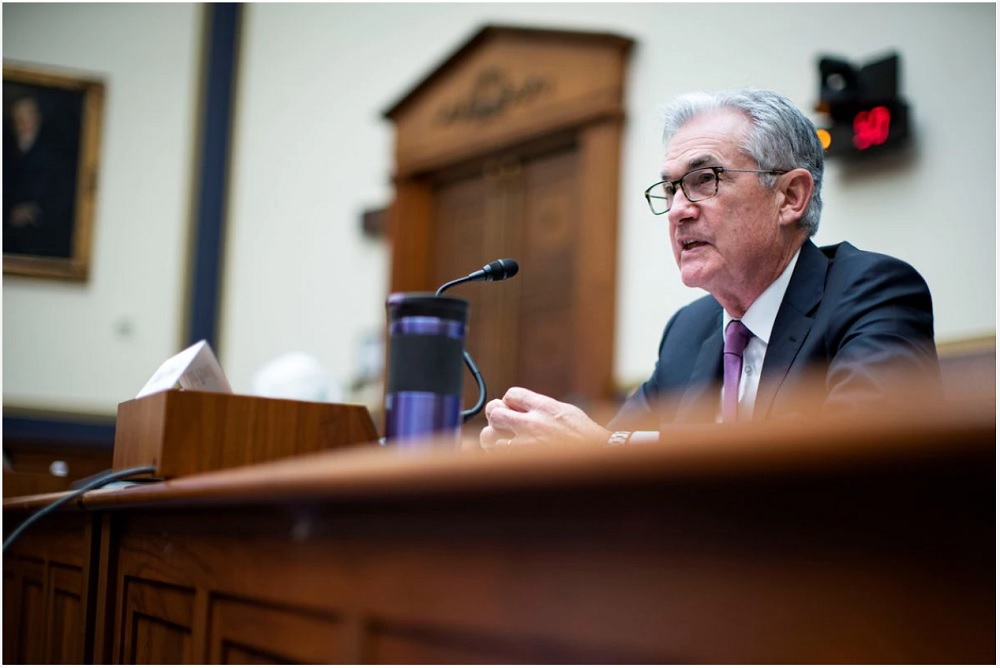What challenges will FED Chairman face in the second term?
Last week President Biden nominated Fed Chair Powell for a second term. Many people welcomed the continuity. However, with confidence in the Fed falling, does this pose major challenges for FED Chairman?

Last week President Biden nominated Fed Chair Powell for a second term.
Trust in central banks is crucial. If you don’t believe us just look at the way that the Turkish lira has slumped in recent weeks. Fortunately, for most central banks, political meddling of the type that has crushed the lira is rare. However, politicians still choose central bankers and hence can have a role in this trust issue.
In opting to maintain the status quo last week, by re-appointing Powell to be Fed Chair, Biden probably thought he was doing the right thing. He could prove correct although there are a couple of reasons to suggest otherwise. First, the Standard Bank’s observation, which is that if we look at a consumer survey that explicitly asks whether respondents have confidence in the Fed, the results make for pretty bad reading.
The most current reading from this survey (produced by IDB/TIPP) is 41.1 on a scale that runs between 0 and 100, and it is the lowest we have seen since 2016. Why does confidence in the Fed, or any central bank matter? Mr. Steve Barrow, Head of Standard Bank G10 Strategy, said it would matter because there is evidence that low levels of trust are associated with higher inflation expectations among the public.
As far as we can tell there seem to be two major factors that influence the public assessment of central banks: inflation and uncertainty. On the former, there seems clear evidence that sharp inflation spikes reduce public confidence in central banks, and often quite markedly. Presumably, this is because the rise in inflation is often unanticipated. The last notable spike in inflation was before the 2008 global financial crisis (GFC) but, back then, inflation slumped as the crisis took hold and this seemed to revive the public’s confidence in the Fed.
However, if we look at today’s situation, Covid is a supply shock as much as a demand shock (the GFC was just a demand shock) and, as such is leading to higher inflation. Of course, there may be some moderation of annual inflation going forward but this persistence of high prices, unlike 2009, suggests to us that confidence in the Fed will remain low.
The second factor is uncertainty and not just uncertainty around the inflation outlook. The Covid shock has seen uncertainty surge, just as we saw in the GFC back in 2008. Looking at today’s situation, there seem to be a couple of issues of concern. As the chart shows, uncertainty has come down significantly since the spring of 2020 but trust in the Fed is still low. The second issue is that Covid can continue to throw up new bouts of uncertainty – as we have seen very recently with the new variant discovered last week. These factors give us concern that trust levels in the Fed will remain quite low in historical terms and, such a situation can make the public expect higher inflation in the future relative to the situation where the central bank does enjoy high levels of trust.
“The bottom line is that retaining Powell as Fed Chair might mean continuity but, if it also means continuity in falling confidence levels in the Fed, the bank could have a harder job reigning in inflation because the public’s inflation expectations will rise and could prove sticky at higher levels. In a relative sense, this problem might not have connotations for currencies. If trust in the Fed is falling for these reasons, it seems reasonable to think it is falling for other central banks in other countries as well, and hence, in relative terms the Fed – and hence the dollar – are no worse off. But for bond yields, this issue could mean higher yields going forward than those that would have been in play if consumers displayed a bit more trust in the Fed”, Mr. Steve Barrow said.








